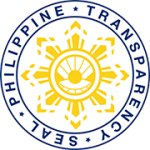
![]()
On May 16, 2024, the 2nd-year Bachelor of Science in Agriculture students embarked on their first Lakbay-aral, designed to broaden their understanding of the agricultural sector and its connection to real-world practices. In addition to providing quality education (SDG 4) through experiential learning, the lakbay-aral aligns with the principles of Sustainable Development Goal 2: Zero Hunger, emphasizing sustainable agricultural practices to ensure food security for all.
The lakbay-aral consisted of three key destinations:
- Philippine Atmospheric, Geophysical and Astronomical Services Administration (PAGASA) Station at Isabela State University
Here, students learned about weather data collection methods and their critical role in agricultural forecasting. This knowledge is crucial for farmers to make informed decisions about planting, irrigation, and pest control, ultimately contributing to improved crop yields and reduced food waste (SDG 12: Responsible Consumption and Production).


- Magat Dam
Witnessing this massive dam firsthand allowed students to appreciate the importance of water resource management in agriculture. Sustainable water management practices are essential for ensuring water availability for irrigation, especially in the face of climate change (SDG 13: Climate Action).

![]()
![]()
![]()
- DA-Philippine Rice Research Institute (PhilRice) in San Mateo, Isabela
Ms. Garcia from PhilRice HR gave the students a warm welcome. They then received an in-depth lecture on rice breeding from field specialist Mr. Jerome V. Galapon. Understanding rice breeding techniques contributes to the development of new, high-yielding, and disease-resistant rice varieties, which is vital for achieving food security (SDG 2: Zero Hunger).
![]()


![]()
This lakbay-aral served a vital purpose beyond textbook learning. By experiencing the agricultural sector firsthand, students gained a deeper appreciation for the complexities and interconnectedness of various agricultural practices. This exposure not only ignited their passion for agriculture but also equipped them with a more holistic perspective as they pursue their chosen career paths. The faculty of the School of Agriculture and Agribusiness, Engr. Angelo Gayo, Mr. Emmanuel Lacueva, and Ms. Jovelyn Seloza, respectively handling the subjects agrometeorology & methodology, plant breeding, and natural resources & environmental management underscores the importance of experiential learning in preparing future agricultural professionals to tackle the challenges and opportunities facing the industry.
![]()


